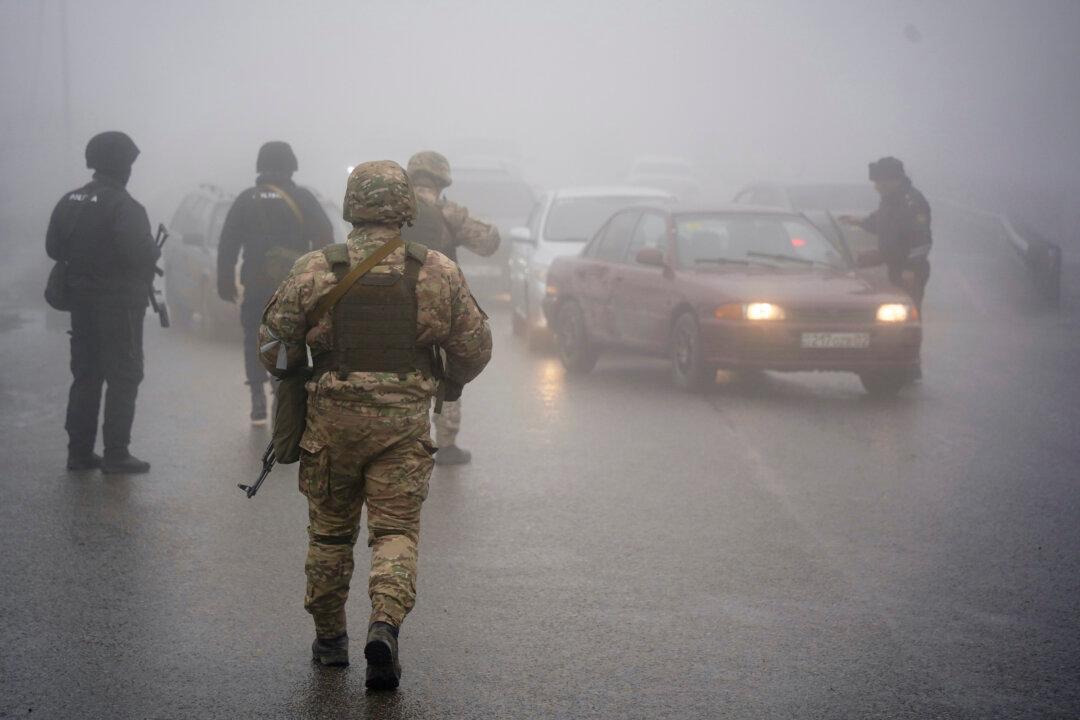The Kazakhstan government has declared it has detained over 5,000 people as political unrest continues to unfold around the country.
In an official update from Kazakh President Kassem-Jomart Tokayev on Jan. 9, Kazakh authorities announced that they had detained 5,800 people, many of whom they labelled “foreigners.”




